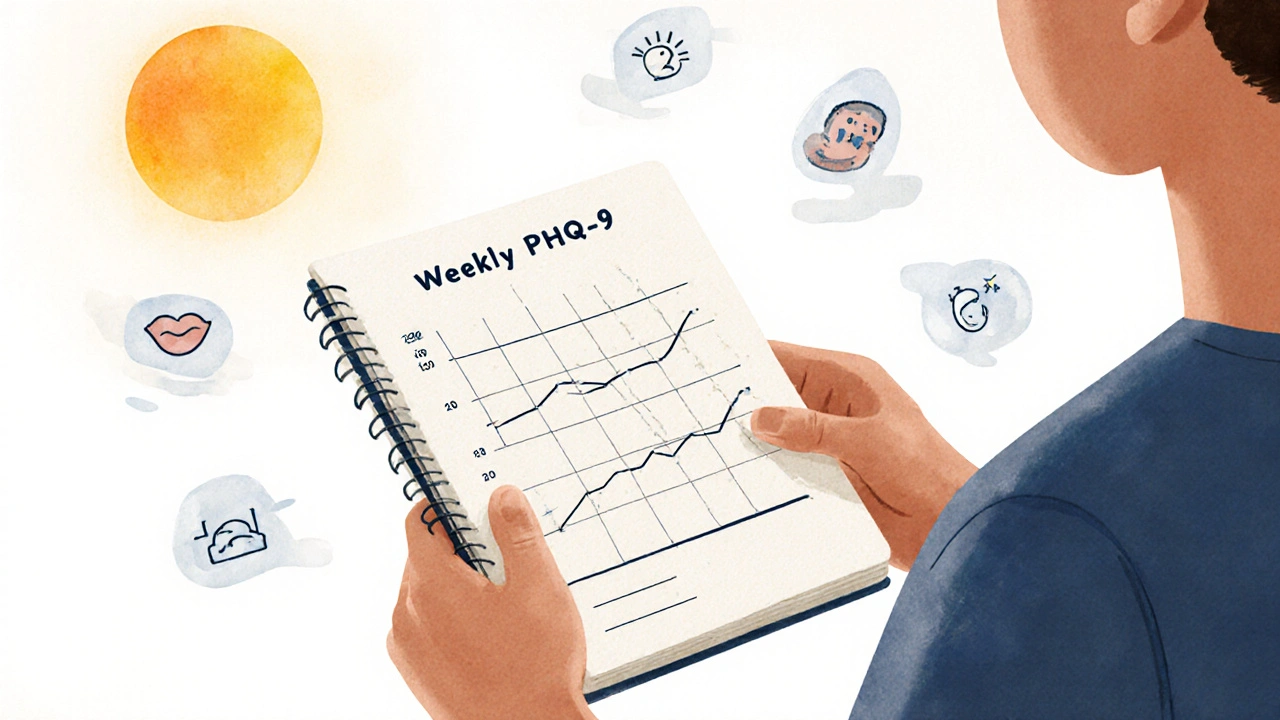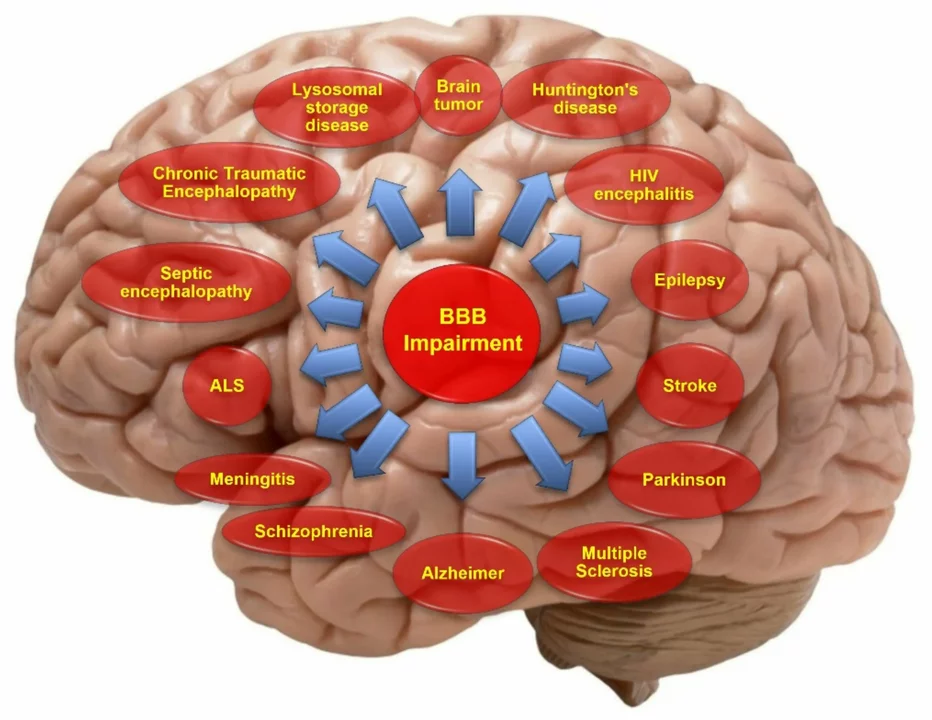Mental Health and Medications: What to Watch For
Medication can help, but it can also change how you feel in ways you might not expect. If you or someone you care for is taking mental health drugs or even antibiotics like Rifampin, pay attention to moods, sleep, and daily function. Small changes matter and spotting them early makes treatment safer and more effective.
Medications and what to watch for
Buspirone is commonly used for anxiety. People often feel calmer after a few weeks, but stigma can make it hard to talk about side effects. If you notice increased restlessness, sleep changes, or new worries, tell your prescriber. Clear communication helps adjust dose or try another option without shame.
Atomoxetine is a non-stimulant for ADHD that often reduces impulsivity and improves focus. Watch for appetite changes, sleep shifts, or mood swings in the first month. If impulsive behavior drops but anxiety or irritability rises, check in with your clinician. Small dose tweaks can make a big difference.
Rifampin is an antibiotic, not a psychiatric drug, but it can affect brain chemistry and how other drugs work. Some people report mood changes, anxiety, or depression while on Rifampin. It also speeds up the breakdown of many medications, which can lower levels of antidepressants or anti-anxiety drugs. Always tell your doctor about every prescription and supplement you take.
Practical steps to stay safe
1) Keep a short daily log. Note mood, sleep, appetite, and any odd thoughts. Two minutes a day gives your provider clear data later. 2) Ask about interactions up front. If you start an antibiotic or new med, ask how it affects your current prescriptions. 3) Set a check-in timeline. Agree with your prescriber on a follow-up in 1–4 weeks after starting or changing meds. Early review catches problems fast.
If you feel suddenly worse, have new suicidal thoughts, or can’t function, get help right away. Call your clinician, local emergency number, or a crisis line. Don’t wait for the next appointment.
Talking helps. If stigma keeps you quiet about Buspirone or any treatment, bring a friend, family member, or a written list of concerns to appointments. Honest talk speeds up finding the right treatment and dose. Practical tweaks—like taking meds at different times, adjusting food intake, or adding sleep routines—can ease side effects without changing the medicine.
Want specifics? Read our posts on Rifampin and mood changes, strategies for overcoming stigma around Buspirone, and how Atomoxetine can reduce impulsivity. Each piece shares real-world tips for talking to your doctor and tracking improvements. Medication is a tool—you’re the expert on how it feels for you. Keep notes, ask questions, and push for answers until treatment works for your life.

How to Recognize Depression’s Impact on Medication Adherence
- by Colin Edward Egan
- on 1 Feb 2026
Depression significantly reduces medication adherence across chronic illnesses, increasing risks of hospitalization and death. Learn how to spot the signs, use validated tools like PHQ-9 and MMAS-8, and implement practical strategies to support patients struggling with both mental and physical health.

Workplace Stress and Burnout: Proven Prevention and Recovery Strategies for 2026
- by Colin Edward Egan
- on 17 Jan 2026
Workplace burnout is a growing crisis, but it's preventable. Learn the real causes, proven prevention strategies backed by data, and how to recover effectively-without quitting your job.

Monitoring Antidepressant Efficacy vs Side Effect Burden: Patient Strategies
- by Colin Edward Egan
- on 24 Nov 2025
Learn how to track antidepressant effectiveness and side effects using simple tools like PHQ-9 and mood journals. Discover patient strategies that improve treatment outcomes and help you have better conversations with your doctor.

How Parents Can Help a Child Cope with Depressive Disorder
- by Colin Edward Egan
- on 18 Oct 2025
Learn practical steps for parents to recognize, support, and treat child depression, covering signs, therapy, medication, school resources, and self‑care.

How Mental Health Impacts Fluid Retention: Causes, Signs & Relief
- by Colin Edward Egan
- on 4 Oct 2025
Explore how stress, hormones, and mental‑health medications cause fluid retention, learn to spot swelling signs, and get practical tips to ease both mind and body.

Rifampin and Mental Health: Potential Effects on Depression and Anxiety
- by Colin Edward Egan
- on 13 May 2023
In my recent research, I discovered the potential connection between Rifampin, a commonly used antibiotic, and its effects on mental health, specifically depression and anxiety. It turns out that Rifampin may influence the levels of neurotransmitters in the brain, which can lead to mood changes. Some studies have reported cases of patients experiencing increased anxiety and depressive symptoms after using Rifampin. It's essential for both patients and healthcare providers to be aware of these possible side effects when using this antibiotic. Further research is needed to fully understand the connection between Rifampin and mental health, but it's definitely a topic worth keeping an eye on.

Overcoming Stigma: Talking About Buspirone and Mental Health
- by Colin Edward Egan
- on 27 Apr 2023
In today's blog post, we're going to discuss the importance of overcoming stigma surrounding mental health and medications, specifically focusing on Buspirone. As someone who has experienced this firsthand, I know how difficult it can be to open up about our mental health struggles and seek the help we need. It's crucial to create a safe and supportive environment for those who are considering or are already taking Buspirone, as this medication can significantly improve their quality of life. Together, let's break the silence and encourage open conversations about mental health and medications like Buspirone. Remember, there's no shame in seeking help and prioritizing our well-being.

The Role of Atomoxetine in Reducing Impulsivity
- by Colin Edward Egan
- on 27 Apr 2023
As a copywriter, I have come across an interesting topic about Atomoxetine and its role in reducing impulsivity. From what I've gathered, Atomoxetine is a non-stimulant medication used to treat ADHD. It's been shown to improve attention and focus while reducing impulsive behaviors. This medication can be a game-changer for individuals struggling with impulsivity, as it helps them gain better control over their actions. Overall, Atomoxetine plays a crucial role in managing ADHD symptoms and improving the quality of life for those affected by it.
